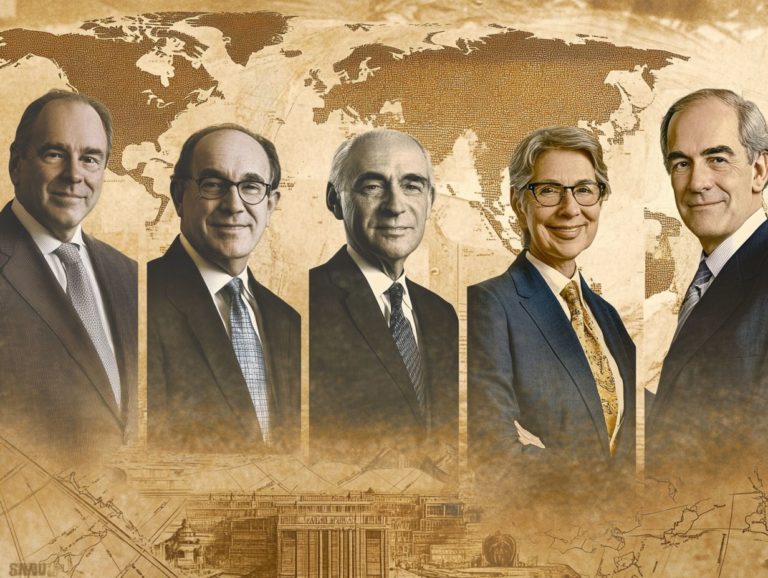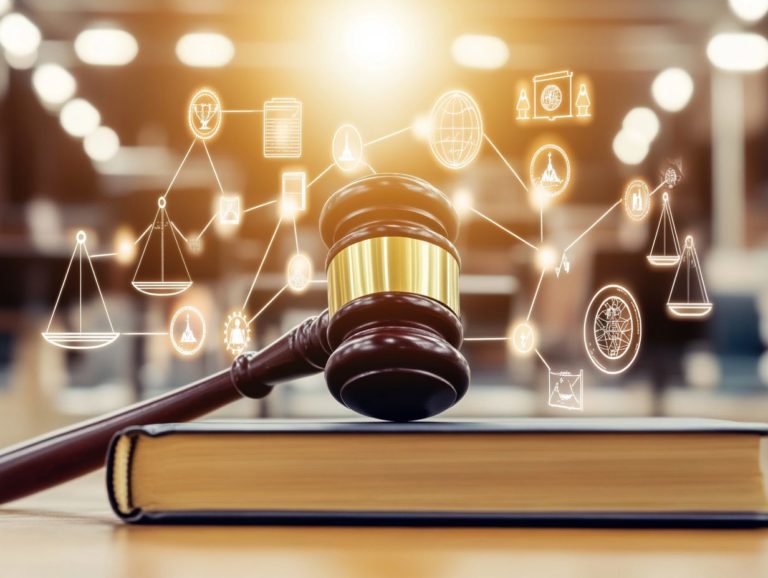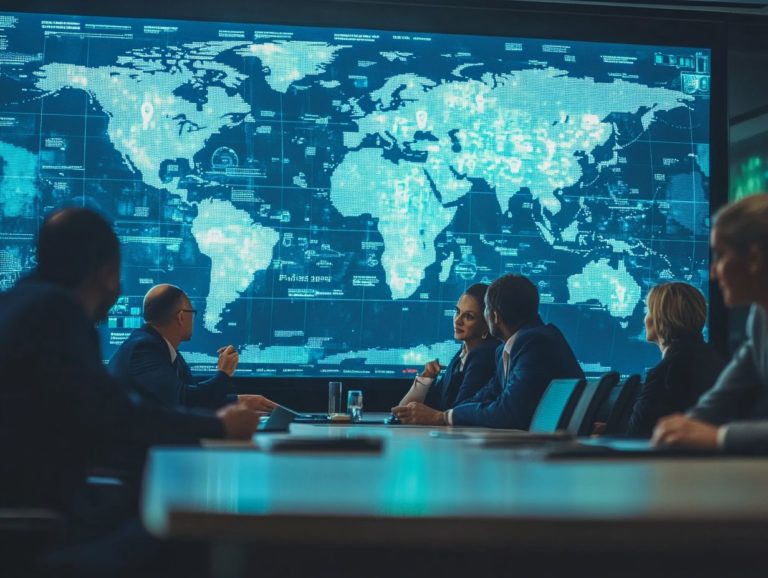The Impact of Digital Technology on International IP Law
In an era where digital technology reshapes industries at breakneck speed, you will find that international intellectual property law (IP law) faces serious challenges and new opportunities.
This article invites you to explore the evolution of IP law through its historical milestones, showcasing how technology has revolutionized copyright and patent protections.
You will encounter pressing issues such as digital piracy and copyright infringement, while also gaining insights into future trends that have the potential to redefine the landscape.
Join us as we explore this exciting and ever-changing field!
Contents
- Key Takeaways:
- The Evolution of International IP Law
- The Impact of Digital Technology on IP Law
- Current Issues in International IP Law
- Future Trends in International IP Law
- Frequently Asked Questions
- What is the definition of digital technology in the context of international IP law?
- How has digital technology impacted international IP law?
- What are some challenges posed by digital technology to international IP law?
- How has digital technology impacted the protection of intellectual property rights?
- What are some opportunities offered by digital technology for international IP law?
- How can international IP law keep up with the rapid pace of digital technology?
Key Takeaways:
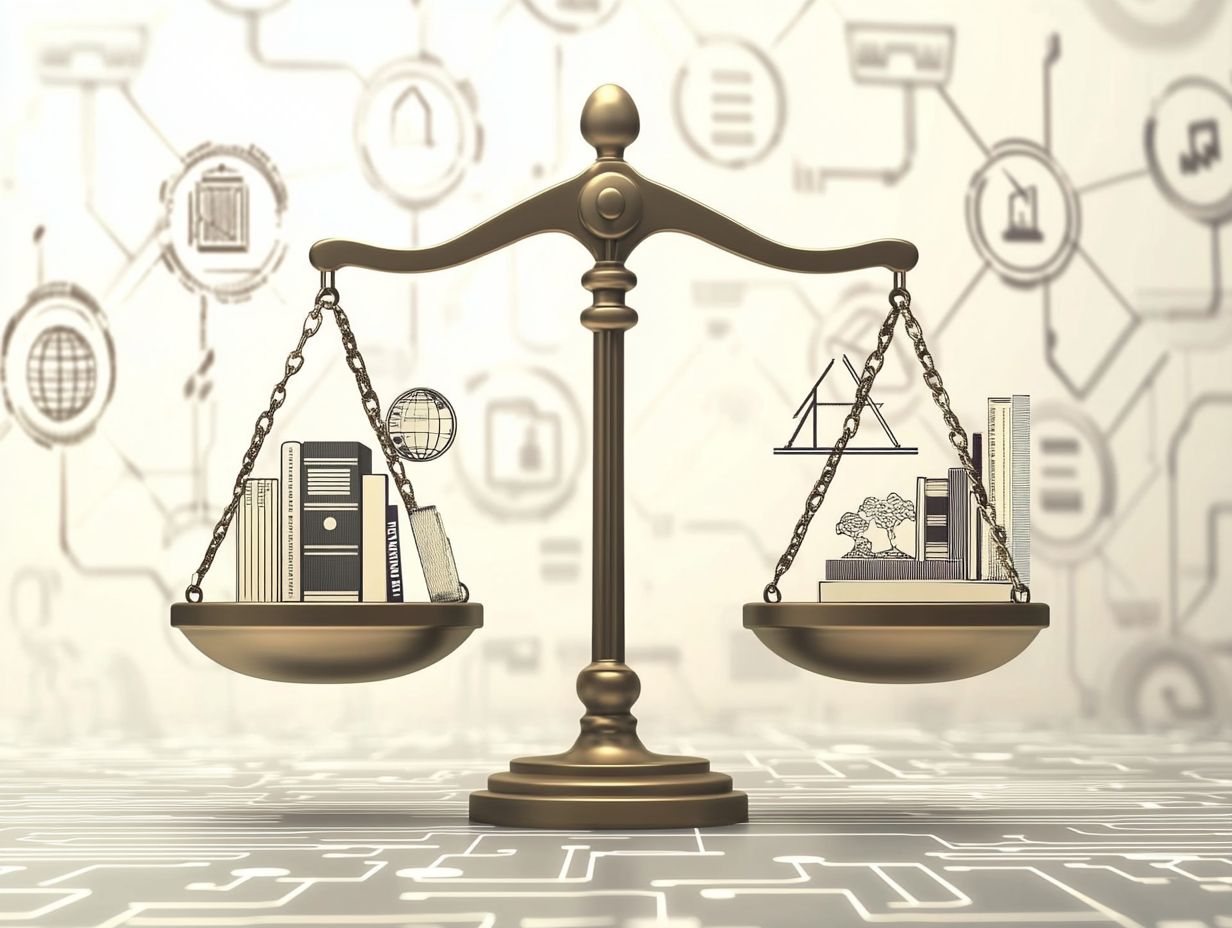
- Digital technology impacts international IP law.
- Address current issues like digital piracy.
- Explore future trends shaping IP law.
The Evolution of International IP Law
The evolution of international IP law reveals a sophisticated interplay between technology and legal frameworks. It has meticulously adapted over the decades to confront the challenges posed by advancements in the digital age, especially in copyright infringement and patent protection.
Influential figures such as Frederick Mostert, along with organizations like WIPO, have played crucial roles in sculpting this legal landscape. Their efforts ensure that intellectual property rights are upheld on a global scale, even as technological innovations continually reshape the boundaries of IP law.
Historical Context and Key Milestones
Understanding the historical context and key milestones in the evolution of international IP law is essential, offering vital insights into how legal frameworks have adapted to technological advancements and the global sharing economy.
Take the establishment of the Berne Convention in the late 19th century, for example. It marked a pivotal moment by creating a standardized framework for copyright protection among member countries, fundamentally changing how creators could secure their works.
Landmark legal cases, like the Betamax case in the United States, also set important precedents regarding fair use, shaping how copyright infringement is viewed today.
These milestones have significant implications for you, as they inform current practices that seek to balance the rights of creators with the demands of an increasingly interconnected world. This ongoing evolution underscores the challenges of protecting intellectual property in a rapidly changing digital landscape.
The Impact of Digital Technology on IP Law
The swift evolution of digital technology significantly impacts IP law, especially concerning digital piracy and the functioning of online platforms.
This dynamic landscape requires legal adaptations to effectively protect intellectual property rights in a world increasingly shaped by powerful Big Tech companies.
Challenges and Opportunities
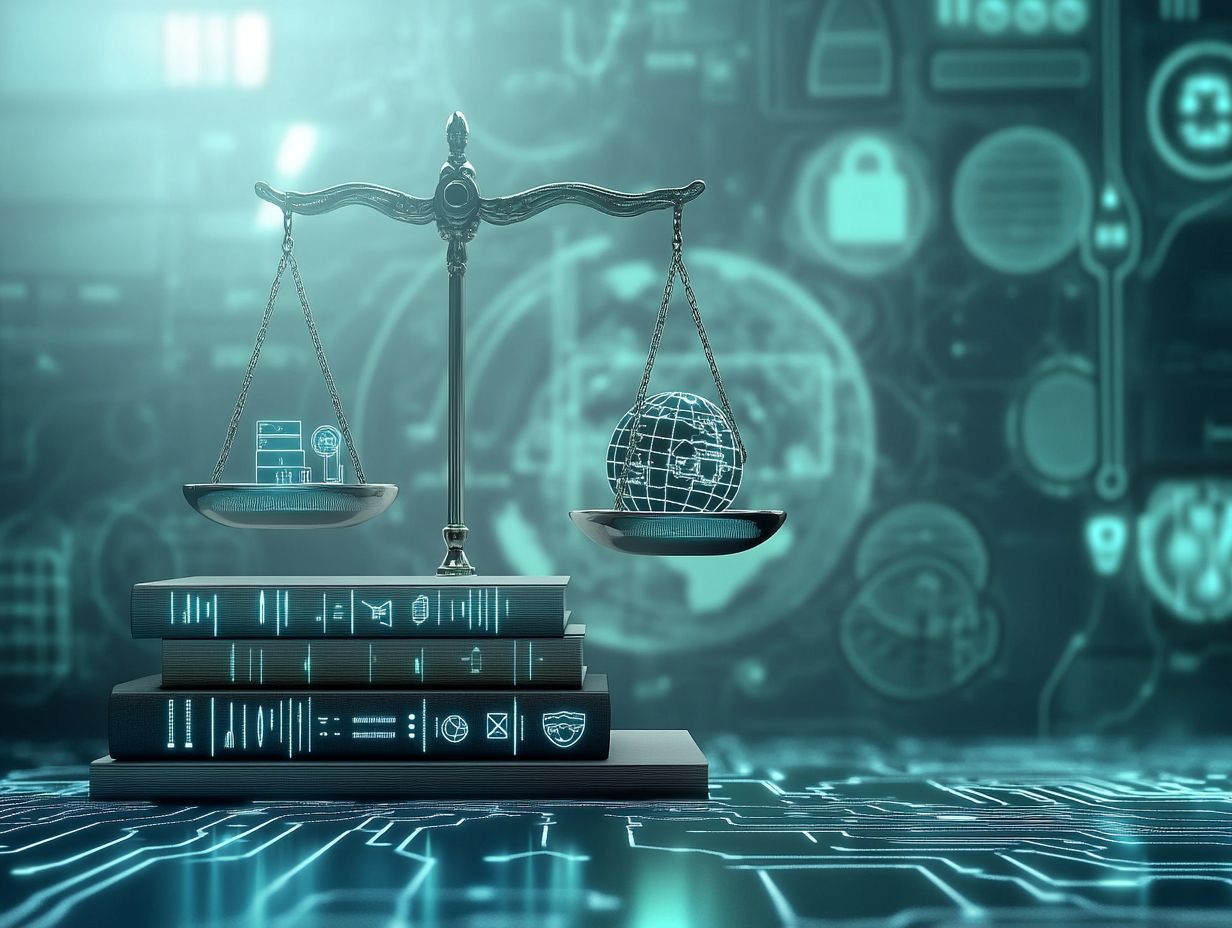
The challenges and opportunities arising from the surge of digital technology compel you to reevaluate traditional intellectual property (IP) law frameworks. This evolving landscape creates a pressing need for innovative legal strategies.
As the internet accelerates the circulation of pirated goods and enables brand impersonation, you face unprecedented threats to your intellectual property. However, the advent of technologies like blockchain a secure way to record information presents promising solutions, allowing for transparent tracking of ownership and transactions, thereby bolstering protection against these infringements.
This situation stimulates a vital conversation about how legal frameworks can adapt, urging lawmakers to embrace more flexible policies that not only tackle current issues but also anticipate future challenges within the digital realm. Now more than ever, adapting IP law is crucial to protect your creative work!
Current Issues in International IP Law
Current challenges in international IP law, especially those related to copyright infringement and digital piracy, present significant hurdles for lawmakers and enforcement agencies.
They are tasked with the critical mission of protecting intellectual property rights today, including in smart cities and expansive global digital marketplaces.
Addressing Digital Piracy and Copyright Infringement
Addressing digital piracy and copyright infringement demands a multifaceted approach that blends legal adaptations, robust enforcement mechanisms, and collaboration among stakeholders in the intellectual property ecosystem.
To effectively tackle the challenges posed by digital piracy, innovative strategies must be employed, such as establishing agile legal frameworks that can swiftly adapt to rapidly evolving technologies.
Engaging in proactive dialogues among governments, businesses, and tech companies is essential for crafting policies that protect intellectual property rights. By sharing resources, expertise, and data, these entities can forge a united front against piracy, enhancing awareness and deterrence.
Leveraging advancements in technology, such as blockchain a technology that securely records transactions and AI can significantly improve the tracking of copyrighted material, ensuring creators receive fair compensation while reducing the prevalence of unauthorized distribution.
Future Trends in International IP Law
Future trends in international IP law are poised to be significantly influenced by emerging technologies like artificial intelligence and blockchain.
These innovations are set to redefine traditional notions of patent protection and intellectual property rights, especially in our increasingly digital landscape.
As these technologies evolve, they will likely challenge existing frameworks and pave the way for new legal paradigms that reflect the complexities of the modern world.
Predictions and Potential Changes
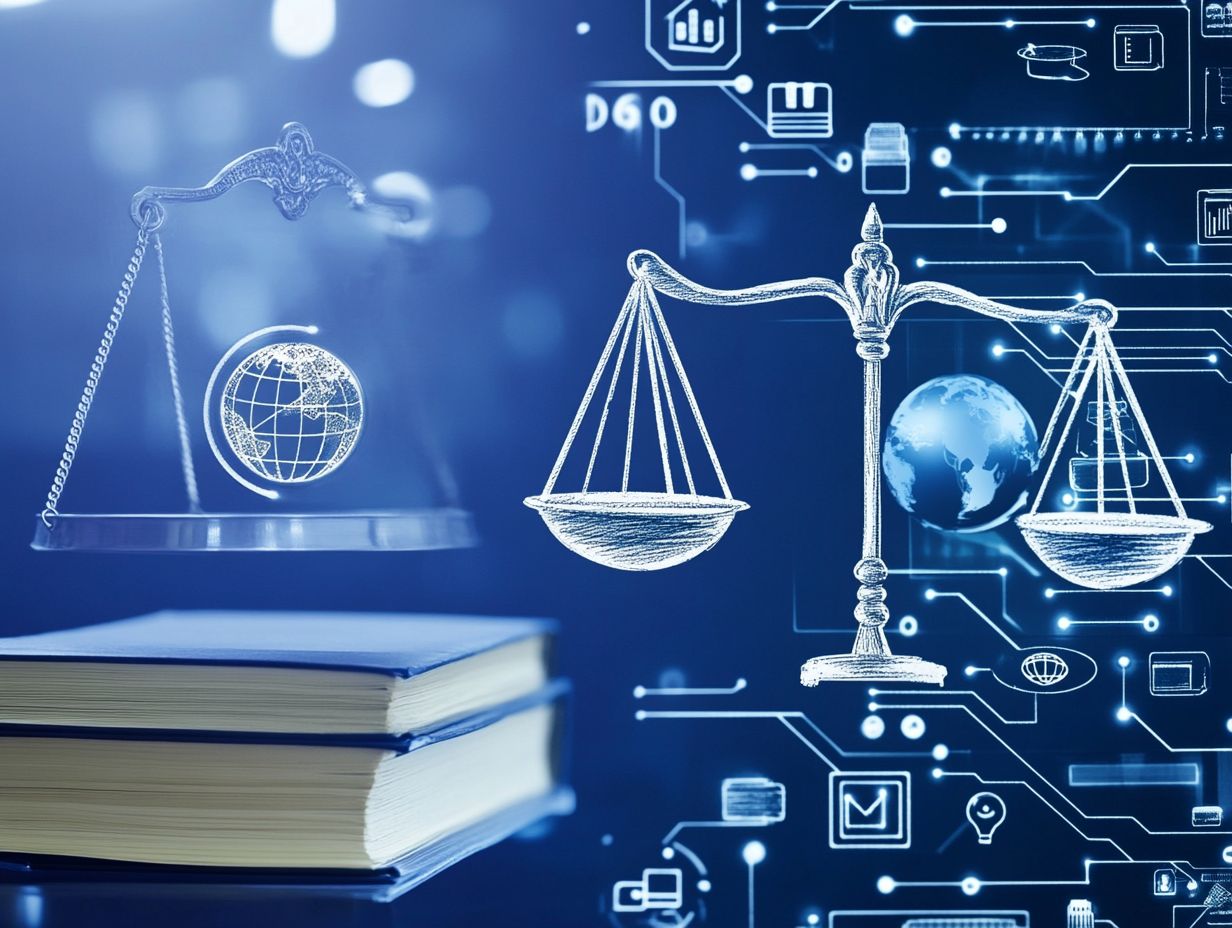
Predictions about the future of intellectual property law indicate that significant changes are on the horizon, largely propelled by collaboration and innovation in smart cities. Prepare for adaptive legislation that aligns with the ever-evolving technological and social landscapes.
As cities increasingly embrace smart technologies, the realm of intellectual property rights is poised for a dramatic transformation. These advancements could pave the way for new collaborative models where the lines between creators and users become increasingly blurred, prompting lawmakers to rethink existing frameworks.
Consider, for example, a growing emphasis on shared data ecosystems. This could lead to stronger protections for user-generated content while nurturing a culture of collaboration. Such shifts could offer substantial benefits for various stakeholders. Businesses might uncover fresh pathways for growth and innovation, while consumers could gain access to enhanced services and products born from this spirit of cooperation.
However, without timely legislative adaptations, confusion and conflict surrounding ownership rights could stifle progress, making it essential to keep a keen eye on these developments.
Watch our video to explore the future of international IP law.
Frequently Asked Questions
What is the definition of digital technology in the context of international IP law?
Digital technology refers to the use of digital or electronic devices, systems, and networks to create, store, and share digital content and data. In the context of international IP law, it encompasses the use of digital tools and platforms to create, distribute, and protect intellectual property (IP) assets, such as copyrights, patents, trademarks, and trade secrets.
How has digital technology impacted international IP law?
The impact of digital technology on international IP law has been significant. It has revolutionized the way IP assets are created, managed, and protected. With the rise of digital platforms and tools, it has become easier and faster to create and share digital content, leading to new challenges and opportunities for IP law.
What are some challenges posed by digital technology to international IP law?
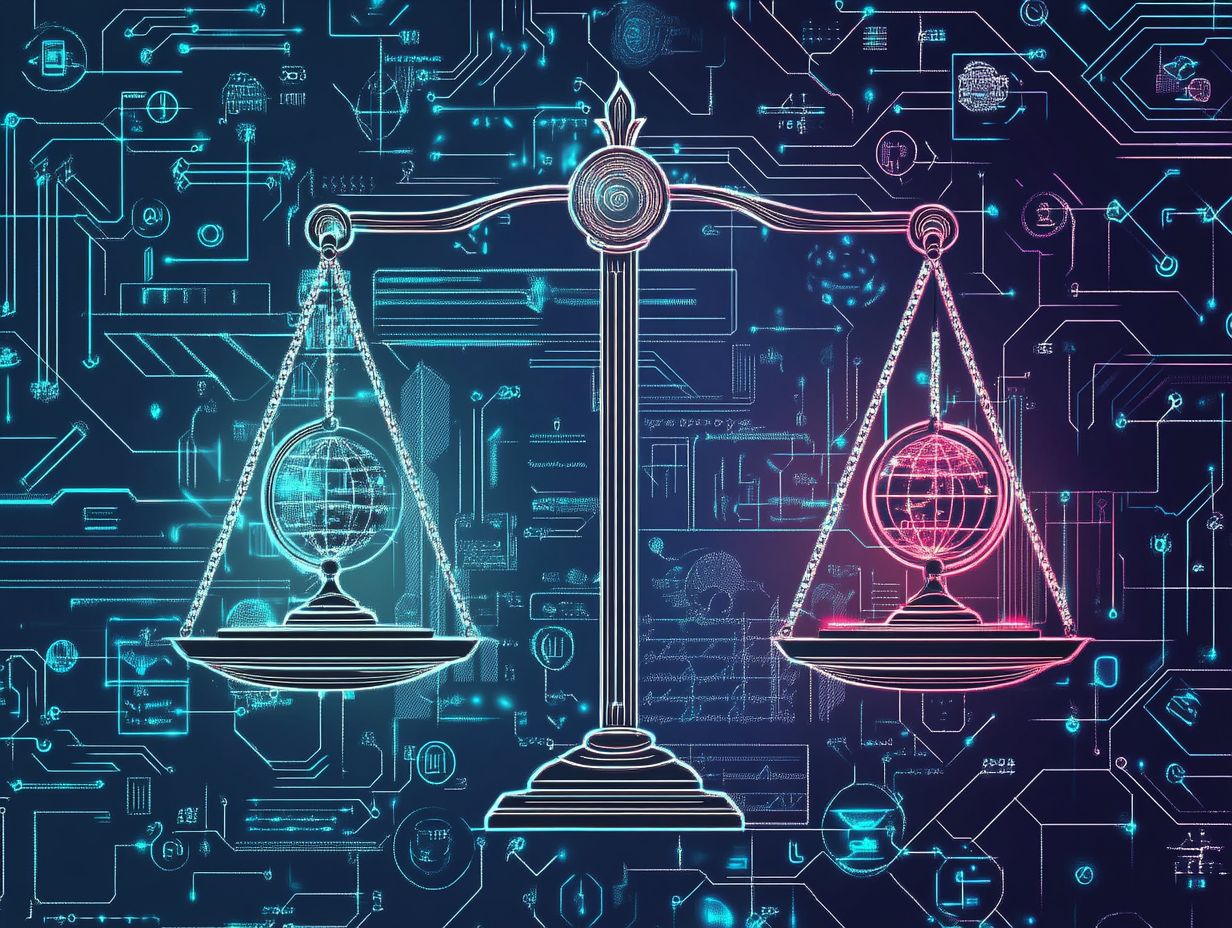
Digital technology poses significant challenges for international IP law. Issues like copyright infringement, online piracy, and protecting trade secrets are now more complex.
How has digital technology impacted the protection of intellectual property rights?
Protecting intellectual property rights is tougher than ever due to digital technology. Yet, new tools like digital watermarks and encryption are stepping up to safeguard content.
What are some opportunities offered by digital technology for international IP law?
Digital technology opens new doors for businesses and creators. Tools and platforms allow easy access to global markets and collaboration.
How can international IP law keep up with the rapid pace of digital technology?
International IP law must adapt quickly to the fast-paced changes in technology. Regular updates and new regulations are essential for effective enforcement.

